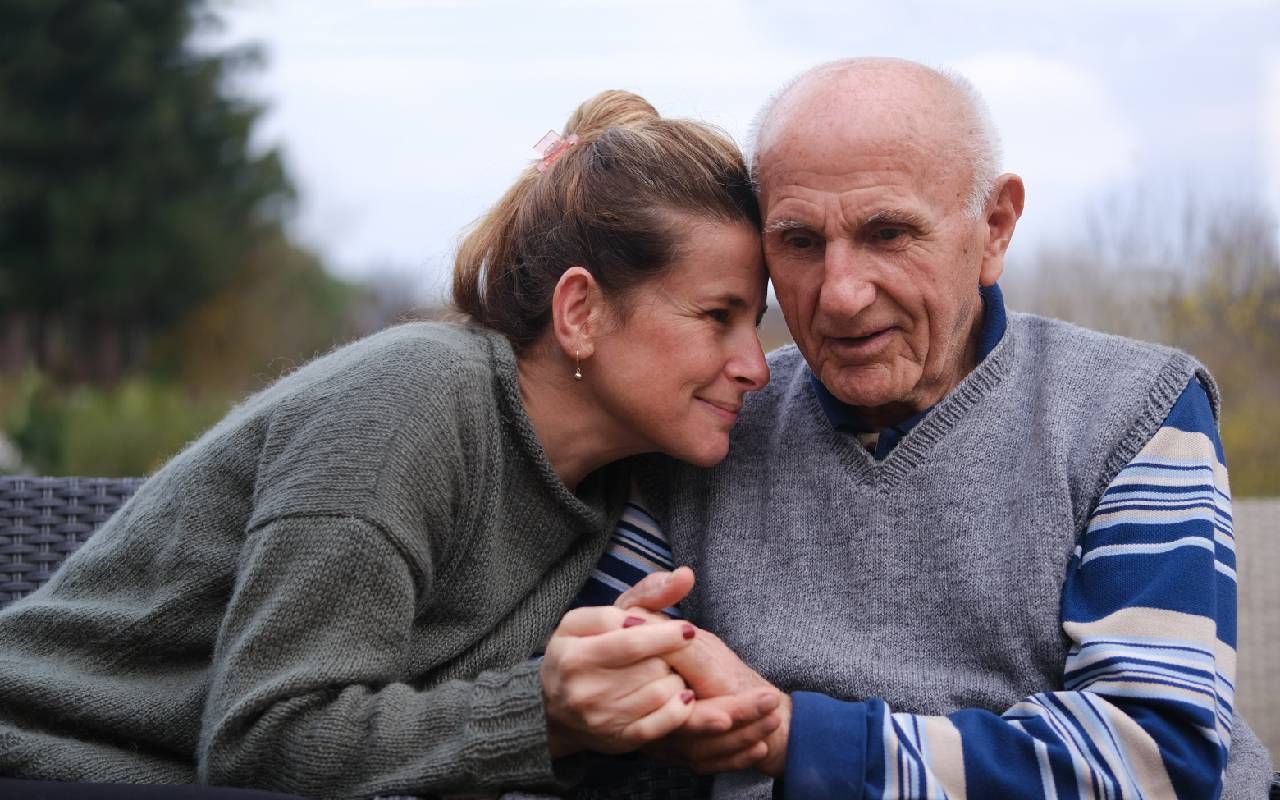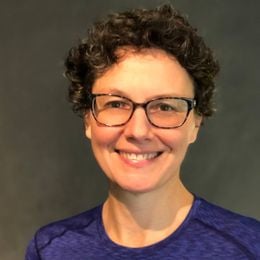Get Paid to Care for Your Loved One
There are a few basic steps to determine whether Personal Care Services (PCS) is right for a loved one and whether a family member may qualify as a paid caregiver
In 2019, Katrina Cordes was a busy 30-year-old, running a massage therapy business and teaching the occupation to others in the Twin Cities metro area of Minnesota. Then her father had a stroke, and everything changed.

The stroke had been a bad one, and Cordes was told that her father would stay in the hospital until he had recovered well enough to be moved into a nursing home, where he would likely remain for the rest of his life.
"Working full time while caring for him was really hectic and incredibly stressful."
"[The doctor] just said it kind of nonchalantly," Cordes said, "but my dad was only 59 when it happened, so I asked if it would be possible for him to come home with me." The doctor seemed skeptical, telling Cordes that her father would need round-the-clock care, but Cordes was determined to help her father live his best life possible. "I just thought he'd be sad [in a nursing home] and didn't feel it was the right place for him."
She wasn't prepared for how much work caring for her dad would be, though. "Working full time while caring for him was really hectic and incredibly stressful," she said. But luckily, someone on Facebook had seen a post about her caring for her dad at home and reached out to ask whether she was being compensated for it under the Centers for Medicare and Medicaid Services (CMS) Personal Care Services (PCS) program.
"I had no idea what she was talking about or that this program even existed," Cordes said.
In talking with others who care for their loved one, I learned that Cordes was not alone.
What Is the PCS Program?
According to a CMS webpage, "Personal care services (PCS) are provided to eligible beneficiaries to help them stay in their own homes and communities rather than live in institutional settings, such as nursing homes."
While the purpose of the program is wonderfully simple, enrolling in it is considerably more difficult. One of the reasons is that, while PCS is a federally-funded program with CMS oversight, it is administered by each state that chooses to participate.
"Personal care services (PCS) are an optional benefit in the Medicaid program and can be implemented at the discretion of each state."
According to information provided by the CMS, "Personal care services (PCS) are an optional benefit in the Medicaid program and can be implemented at the discretion of each state. There are a number of Medicaid authorities through which states can choose to offer PCS. Each authority has different statutory requirements and states have flexibility to design their optional programs within those parameters. Most states offer PCS through at least one Medicaid authority. Because each state offers individual programs, we refer you to the state Medicaid agencies for additional information about their particular PCS programs."
With each participating state having one or more different versions of the program, it can be difficult to know exactly how and where to begin. Luckily, there are a few basic steps everyone can follow to determine whether PCS is right for their loved one and whether they may qualify as a paid caregiver under the program.
Navigating the Bureaucracy
Contact Your State Medicaid Office. Usually, this office falls under a state's Department of Health and Human Services, but a shortcut to finding the right department may be typing "PCS in-home care [state name]" into a search engine. When you find them, this entity will have the information you need to get the process started.
Determine Your Loved One's Eligibility for Care. There are three questions a state needs answered to determine whether an individual qualifies for in-home care under PCS: Does the individual require assistance with activities of daily living; how many hours of care per day do they need; and do they financially qualify for Medical Assistance or payment of care through a Managed Care Organization?
Once it has been determined that your loved one qualifies for in-home care under PCS, you can begin the process of getting certified as their Personal Care Assistant.
In most states, these assessments are done by counties, tribal nations or Managed Care Organizations, so be ready to make more phone calls.
Meet Your State's PCA Requirements. Once it has been determined that your loved one qualifies for in-home care under PCS, you can begin the process of getting certified as their Personal Care Assistant.
Importantly, current federal and state policies rule out several common categories of caregivers under PCS.
No one is allowed to act as both the Responsible Party and PCA for an individual, so you'll have to appoint someone else you trust to act as Responsible Party if your loved one is not able to make decisions about their care for themselves.
States also impose other restrictions on who can act as PCA under the program. In Minnesota, for example current regulation does not allow a spouse to act as PCA (but an ex-spouse may), nor can the parent of a minor child (but the parent of an adult disabled child may). Changes to these limitations are in the works, however, so ask your State Medicaid office whether you can act as PCA for your loved one.
If you are eligible, you may have to complete training and pass a background check before being certified as a PCA. Under many programs, you will also then have to be brought on as an employee of a private agency that will administer further training and schedule semi-annual in-home assessments through the county to determine your loved one's ongoing need for care and ensure that they are receiving a proper standard of care.
Benefits Worth the Hassle
For Cordes, all of this took about four months, but once she was certified and brought on as a paid PCA with an agency, she was able to quit teaching and reduce the hours at her massage therapy practice. Last May she closed her practice and now only works as her father's full-time PCA.
You are relieved of at least some of the stress and financial burden of working outside the home while ensuring your loved one is cared for.
Since she works for an agency, they take a portion of the money paid by the state, but Cordes said she receives a living wage and, "There would have been way more paperwork and responsibility required on my part. Now all I have to do is turn in a time sheet and I don't have to worry about anything else."
Dealing with multiple government agencies, appointing a legal Responsible Party, finding a good agency (Cordes quickly ditched the first one she worked for), completing training and passing a test can all seem daunting, but consider what's on the other side of the hassle:
You are relieved of at least some of the stress and financial burden of working outside the home while ensuring your loved one is cared for.
What's more, multiple PCAs can be employed in the care of one individual. Cordes currently provides care for her father five or six days per week, while her mother (who is divorced from her father and therefore eligible to be his PCA) cares for him the other one or two days per week. This arrangement, which only started recently, has given Cordes regular time entirely to herself for the first time since 2019.
Most importantly, though, you get to keep your loved one at home, providing better care than they would likely receive from someone who doesn't know them and their condition as well as you do.
For those living in rural areas, this is especially valuable, since there may not be a nearby home health agency to provide in-home care and the nearest nursing home may be hours away.
The PCS program is not perfect, but improvements are in the works at the state and federal level to broaden access and make it easier for more people to care for their loved ones at home. Even in its current iteration, though, it is a program with significant benefits that more people should know about.


